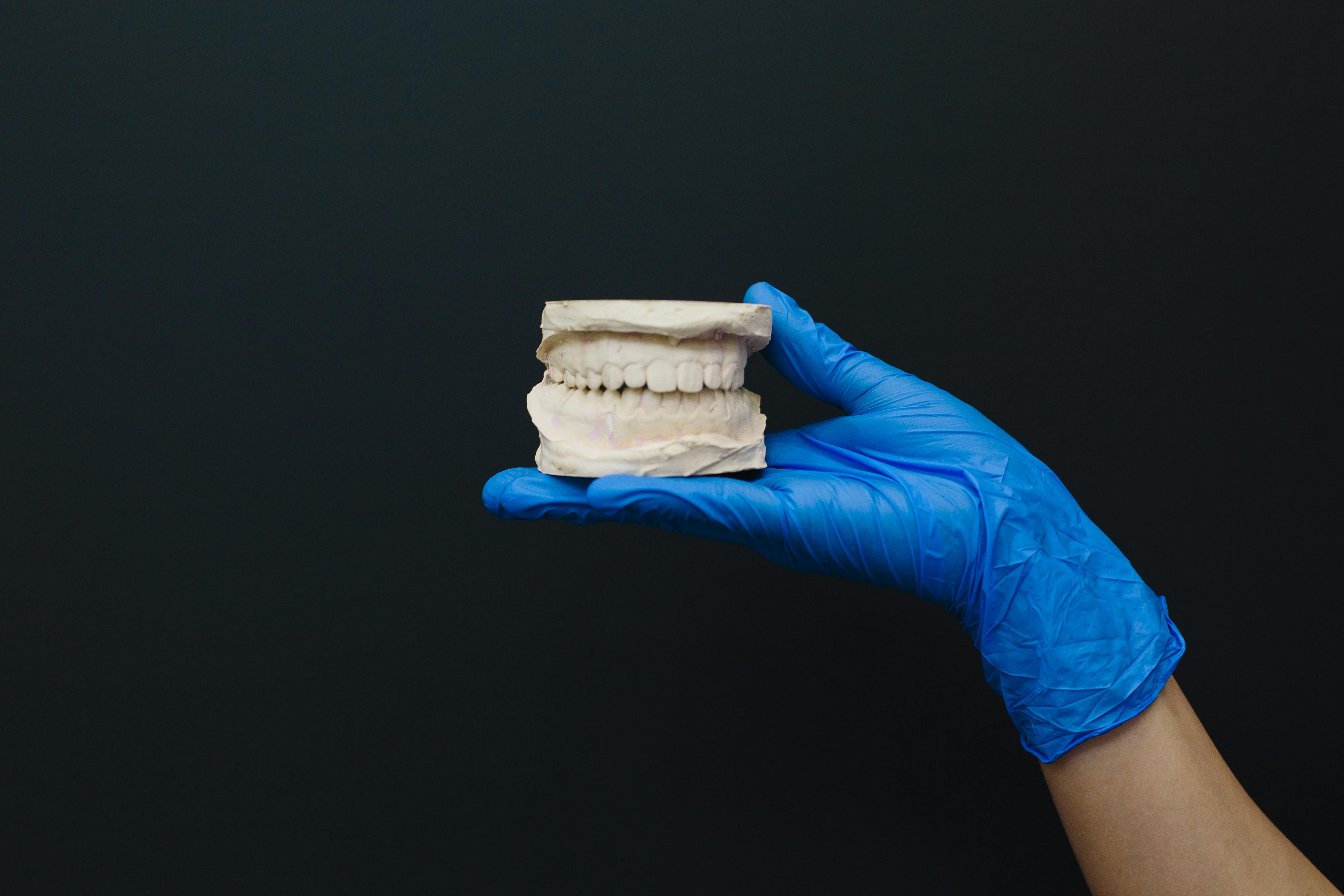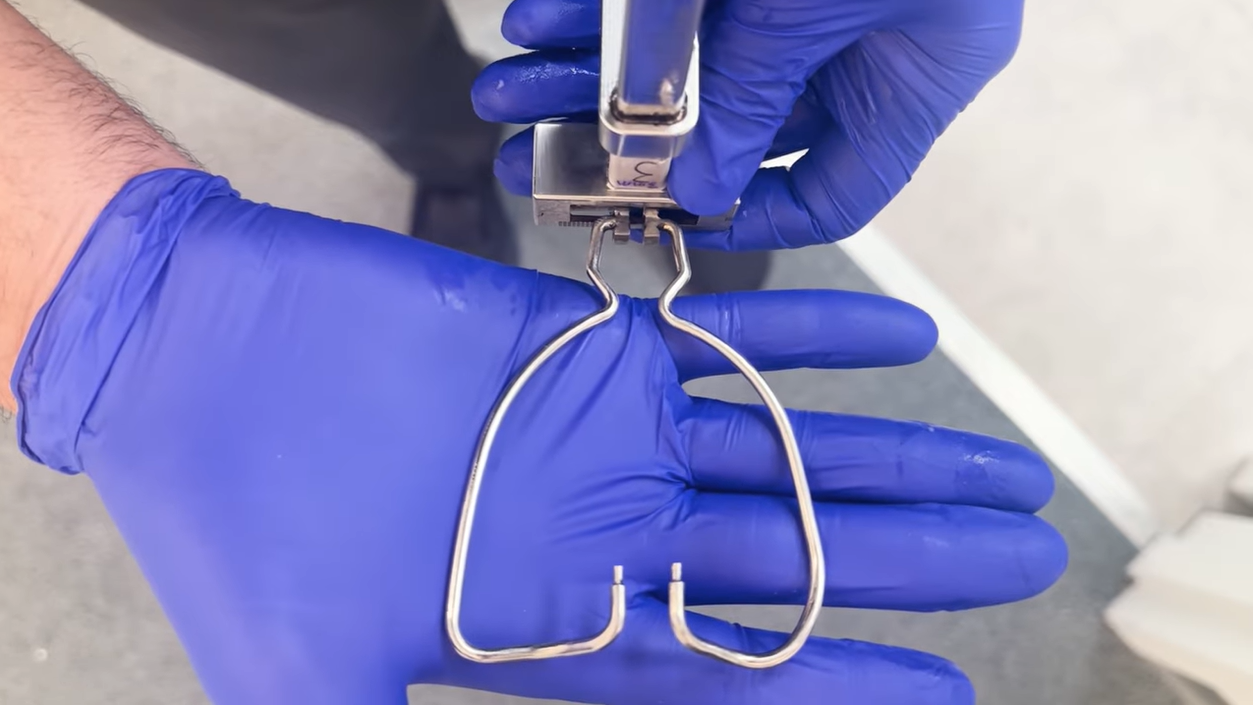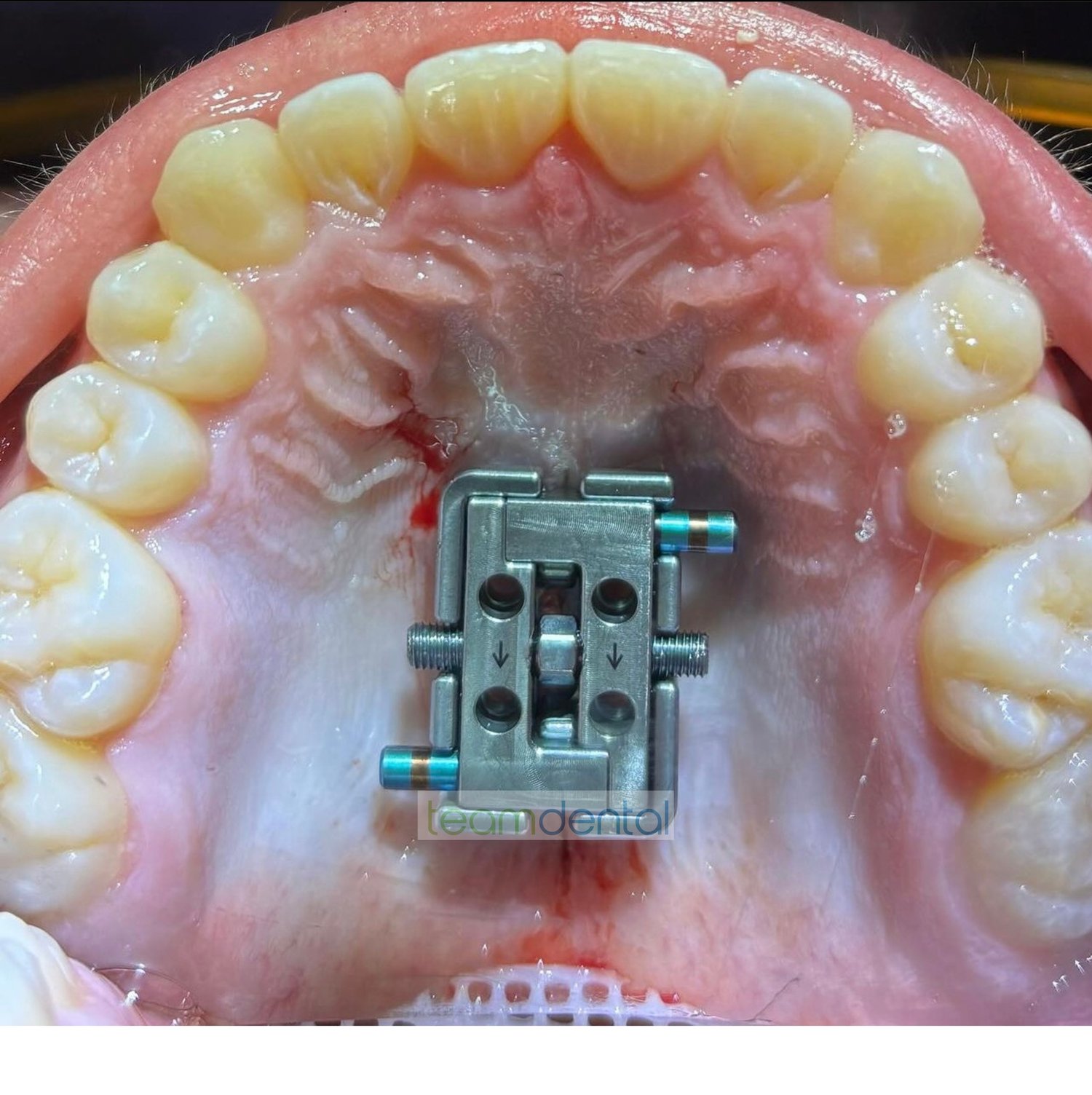
Facegenics FMA: The New Facemask Protraction Device Explained
If you're following the latest in airway orthodontics and jaw development, you may have heard whispers about Facegenics' new FMA device. This cutting-edge appliance pairs with the Facegenics Midface Expander (FME) to do something unprecedented: pull the entire upper jaw (maxilla) forward in a non-surgical way.
The FMA is a facemask-style device for maxillary protraction – essentially a high-tech update on traditional "reverse-pull" headgear used to correct underdeveloped upper jaws. Unlike the old facemasks you might recall from childhood orthodontics, the FMA comes with innovative engineering and patent-backed design that could make a huge difference for adults and children alike.
What is the Facegenics FMA?
The Facegenics FMA stands for Facegenics Facemask Appliance. It's a modern orthodontic facemask designed to attach directly to a bone-anchored expander (like the FME) in a patient's palate. In simpler terms, FMA is a device worn outside the mouth (similar to traditional headgear) that applies forward pulling forces to the upper jaw — but instead of pulling on your teeth, it pulls on your bones.
Key Components of the FMA
- Facemask Frame: An external frame with both headgear and a chest/shoulder harness to distribute force evenly
- Cantilever Rod: Curved forward bar connecting the harness to the headpiece
- Elastic Hooks: For attaching elastics or springs to the FME
- Chest Anchor Plate: Transfers counterforce to the torso instead of the face
- Forehead Pad: Provides stability and comfort for long wear times
How Does the FMA Work?
The FMA treatment process follows a systematic approach:
Step 1: Bone-Anchored Expansion First (FME)
Before protraction begins, the upper jaw is widened using the FME to loosen the midface sutures. This prepares the bone for forward movement.
Step 2: Attaching the FMA
The device is fitted over the head and torso, with connections made to the intraoral expander through elastic hooks.
Step 3: Applying Protraction Force
Elastics pull the upper jaw forward while distributing counterforce to the chest and shoulders, avoiding facial compression.
Step 4: Continuous Wear
The FMA is designed for extended daily wear, including overnight use, to maximize treatment effectiveness.
Step 5: Adjustments
Force and angle can be fine-tuned over time based on patient response and treatment goals.
Why Is the FMA Different from Old Facemasks?
The FMA represents a significant advancement over traditional protraction devices:
Skeletal Anchorage
Direct connection to bone via the FME eliminates unwanted dental movement. Forces are applied to the skeleton, not the teeth.
Force Distribution
The harness system spreads pressure over the chest and shoulders, dramatically reducing discomfort compared to traditional facemasks that press against the face.
Freedom of Movement
Low-friction joints allow head rotation and nodding without losing protraction force, improving comfort during sleep and daily activities.
Who Can Benefit from FME + FMA Treatment?
Underbites (Class III Malocclusion)
Patients with lower jaws that protrude beyond the upper jaw can benefit from maxillary advancement.
Adults with Narrow, Retruded Midfaces
The FMA opens possibilities for adults who were previously told surgery was their only option.
Airway and Sleep Apnea Patients
Forward movement of the maxilla can significantly improve airway dimensions and breathing quality.
Children with Craniofacial Growth Issues
Early intervention with FMA can guide facial development in the right direction.
Post-Expansion Patients Wanting More
Those who have completed palatal expansion but desire additional forward movement of the midface.
Clinical Insights and Patent-Backed Design
The Facegenics patents reveal several innovative features:
Body-Anchored Protraction
Forces are transferred to the torso rather than compressing the head, reducing discomfort and potential side effects.
Cantilever Rod with Bearings
The bearing system allows natural head movement while maintaining consistent protraction force.
Adjustable Force Vectors
Clinicians can fine-tune the direction and magnitude of force to optimize jaw movement for each patient.
Bed Mount Option
An optional bed mount allows for overnight traction, maximizing treatment time while the patient sleeps.
FMA vs. Surgical Alternatives
While double jaw surgery remains the gold standard for severe cases, the FMA offers compelling advantages for appropriate candidates:
| Factor | FMA Treatment | Jaw Surgery |
|---|---|---|
| Invasiveness | Non-surgical | Major surgery |
| Recovery | Minimal downtime | 6-12 weeks |
| Reversibility | Adjustable | Permanent |
| Cost | $10,000-20,000 | $25,000-50,000+ |
| Risk Profile | Lower | Higher |
When FMA May Be Preferred
- Mild to moderate maxillary deficiency
- Patients seeking non-surgical options
- Those who cannot undergo general anesthesia
- Younger patients still growing
When Surgery May Be Necessary
- Severe skeletal discrepancies
- Complex bite issues requiring multiple jaw movements
- Cases where FMA treatment has been unsuccessful
Expected Results from FMA Treatment
Patients typically experience:
- Forward maxillary movement: 3-6mm or more depending on case
- Improved facial profile: Better balance between upper and lower face
- Enhanced airway: Increased nasal and pharyngeal space
- Better breathing: Reduced mouth breathing and snoring
- Improved aesthetics: Fuller midface and better cheek support
Treatment Timeline
| Phase | Duration | Focus |
|---|---|---|
| Expansion (FME) | 2-4 months | Widening the palate |
| Protraction (FMA) | 6-12 months | Forward jaw movement |
| Retention | 6-12 months | Stabilizing results |
| Total | 14-28 months | Complete treatment |
Finding an FMA Provider
The Facegenics FMA is a specialized device requiring specific training. When seeking treatment:
Look For
- Providers certified in FME/FMA placement
- Experience with adult maxillary protraction
- Comprehensive airway evaluation capabilities
- Before/after documentation of similar cases
Questions to Ask
- How many FMA cases have you completed?
- What results can I realistically expect?
- What is the total treatment cost including all phases?
- How will you monitor my progress?
Conclusion
The Facegenics FMA, paired with the FME, is a potential game-changer for non-surgical maxillary advancement. For patients who want to avoid invasive surgery while improving facial aesthetics, airway health, and overall function, this technology represents an exciting new option.
While more long-term data is needed, early results are promising. If you're considering treatment for midface deficiency or airway issues, the FMA is worth discussing with a qualified provider to determine if you're a suitable candidate.


